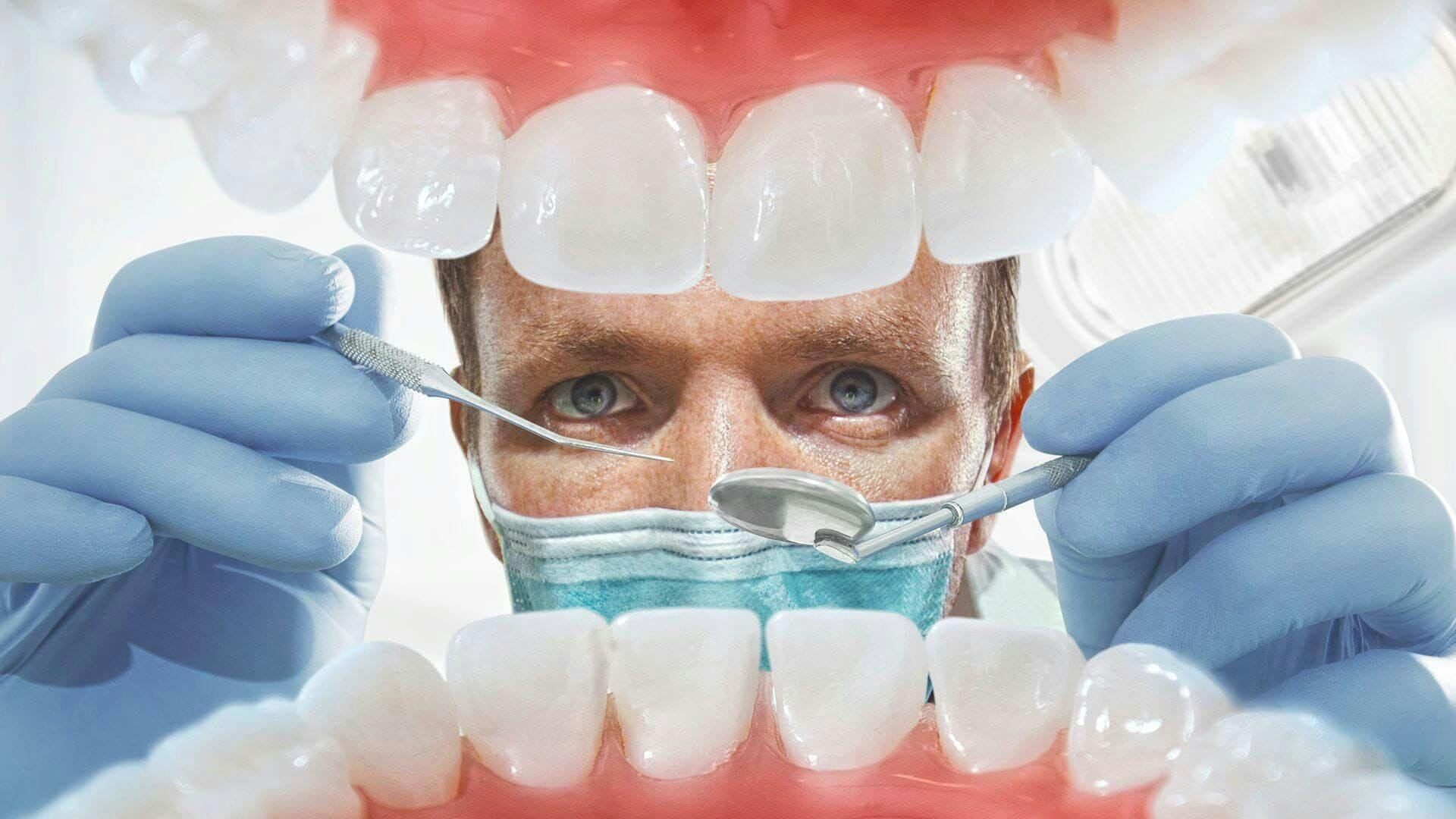Experience Comprehensive Dental Treatment with a Relied On Eugene Dentist
Experience Comprehensive Dental Treatment with a Relied On Eugene Dentist
Blog Article
An Overview to Usual Dental Conditions That Need a Dentist's Care
Comprehending the series of oral conditions that require professional care is critical for preserving optimal oral health. Toothaches, for instance, can be symptomatic of severe issues such as dental caries, split teeth, or abscesses, each requiring specific interventions like dental fillings or origin canals. Periodontal illness, from the very early stages of gingivitis to extra severe periodontitis, emphasizes the significance of regular oral examinations and cleansings. In addition, affected knowledge teeth and jaw disorders can present significant discomfort and problems. Ensuring prompt brows through to the dental practitioner can mitigate these issues successfully, yet what specifically are the therapies and indications included?
Toothaches
Toothaches are a common oral problem that can range from mild pain to extreme pain, often showing a hidden concern that needs professional focus. This discomfort can originate from a selection of sources, consisting of oral tooth cavities, broken or fractured teeth, and dental abscesses. Each of these problems presents significant dangers if left unattended, potentially resulting in much more serious complications.
Tooth decays, likewise referred to as cavities, are brought on by the accumulation of plaque that wears down tooth enamel, causing openings or pits in the affected teeth (dentist eugene or). Split or fractured teeth, on the other hand, might result from trauma, grinding, or biting into difficult objects. These structural problems can expose the delicate inner layers of the tooth, creating acute pain and boosting the risk of infection. Abscesses hurt infections at the root of a tooth or in between a tooth and the periodontal, normally arising from extreme decay or untreated dental caries.
Reliable treatment of toothaches involves resolving the origin. This may consist of dental fillings for dental caries, crowns for cracked teeth, or root canals and prescription antibiotics for abscesses. Early treatment by an oral professional can avoid more deterioration and minimize discomfort, making certain optimal oral health and wellness.
Gum Condition
Gum tissue illness, a widespread yet commonly forgotten oral condition, manifests through swelling and infection of the gums and supporting tissues. This condition largely takes place in 2 stages: gingivitis and periodontitis. Gingivitis, the milder form, provides with signs such as red, swollen periodontals that may bleed conveniently throughout cleaning or flossing. If left without treatment, gingivitis can proceed to periodontitis, a much more serious kind characterized by the damage of the supporting bone and connective tissue, eventually resulting in missing teeth.
The main source of gum tissue illness is microbial plaque, a sticky, colorless film that regularly forms on teeth. Poor dental health, smoking, genetic predisposition, and specific medical problems, such as diabetic issues, can aggravate the risk of developing gum illness. Normal oral examinations are vital for very early discovery and management of this problem.
Treatment for periodontal disease ranges from specialist dental cleansing and scaling to advanced treatments like origin planing and periodontal surgical treatment, depending on the extent. Keeping good oral hygiene techniques, including cleaning twice daily, flossing, and making use of an antibacterial mouthwash, can significantly reduce the threat of periodontal disease and advertise healthier periodontals.
Cavities
Cavities, additionally known as cavities, are a common oral problem characterized by the destruction basics of tooth enamel as a result of acid-producing bacteria in the mouth. These germs prosper on sugars and starches from food and drinks, producing acids that progressively deteriorate the enamel, causing cavity development.
Early-stage cavities may disappoint symptoms, however as they progress, they can trigger tooth pain, sensitivity to chilly or hot, visible openings or pits in the teeth, and discoloration. If left neglected, tooth cavities can permeate much deeper layers of the tooth, possibly resulting in severe discomfort, infection, and even tooth loss.
Stopping cavities entails a combination of great oral health methods and dietary practices. Routine cleaning with fluoride tooth paste, flossing, and regular dental examinations are essential. Dental practitioners may additionally suggest additional safety nets, such as fluoride treatments and dental sealers, to shield teeth from degeneration.
Small tooth cavities can be resolved with oral fillings, which restore the tooth's structure. Extra advanced cases might need crowns or even origin canal therapy if the decay has reached the tooth's pulp.

Impacted Knowledge Teeth
Affected knowledge teeth are a widespread dental concern that happens when the 3rd molars, frequently referred to as wisdom teeth, fail to completely arise or line up appropriately within the mouth. This condition commonly results from insufficient space in the jaw or an irregular development angle of the teeth. Impacted wisdom teeth can lead to a range of problems, consisting of pain, infection, and damages to nearby teeth.
When knowledge teeth end up being influenced, they are frequently partly erupted or continue to be completely underneath the gum tissue line. This partial eruption can produce a pathway for germs to get in the gum tissues, bring about infections that show up as swelling, pain, and also fever. Furthermore, influenced wisdom teeth can apply stress on bordering teeth, possibly creating crowding or look these up shifting.
A detailed oral assessment, commonly involving X-rays, is necessary for diagnosing impacted wisdom teeth. Regular dental check-ups are recommended to keep track of the condition and keep oral health.
Jaw Problems
Jaw disorders, jointly called temporomandibular joint (TMJ) problems, include a find more information variety of problems that influence the jaw joint and surrounding muscle mass. These problems can materialize via signs and symptoms such as discomfort or inflammation in the jaw, trouble eating, a clicking or standing out sound when closing the mouth or opening up, and also persistent headaches. TMJ problems can emerge from various elements, including arthritis, jaw injury, or habitual actions like teeth grinding or jaw clenching.
Diagnosis of TMJ problems generally involves a detailed examination by a dental expert, including a physical exam of the jaw, oral X-rays, and in some cases advanced imaging techniques like MRI or CT checks to evaluate the joint's condition. Treatment options differ depending on the seriousness of the problem. Non-invasive methods such as physical treatment, oral splints, and medications aimed at decreasing swelling and pain are frequently first-line treatments. In much more severe situations, medical interventions may be necessary to deal with architectural issues within the joint.
Very early treatment by an oral expert is crucial to protect against the progression of TMJ problems and to preserve general oral wellness. Patients experiencing relentless jaw discomfort or disorder should seek prompt evaluation and therapy.
Final Thought
Toothaches often show underlying issues such as dental caries, split teeth, or abscesses, needing timely intervention. Influenced knowledge teeth and jaw problems also require specialist focus to minimize discomfort and stop additional difficulties.
Dental cavities, likewise recognized as cavities, are triggered by the buildup of plaque that deteriorates tooth enamel, leading to openings or pits in the affected teeth. Abscesses are excruciating infections at the root of a tooth or in between the periodontal and a tooth, commonly resulting from extreme decay or unattended dental caries.

In addition, impacted knowledge teeth can put in stress on neighboring teeth, potentially triggering crowding or changing.
Report this page